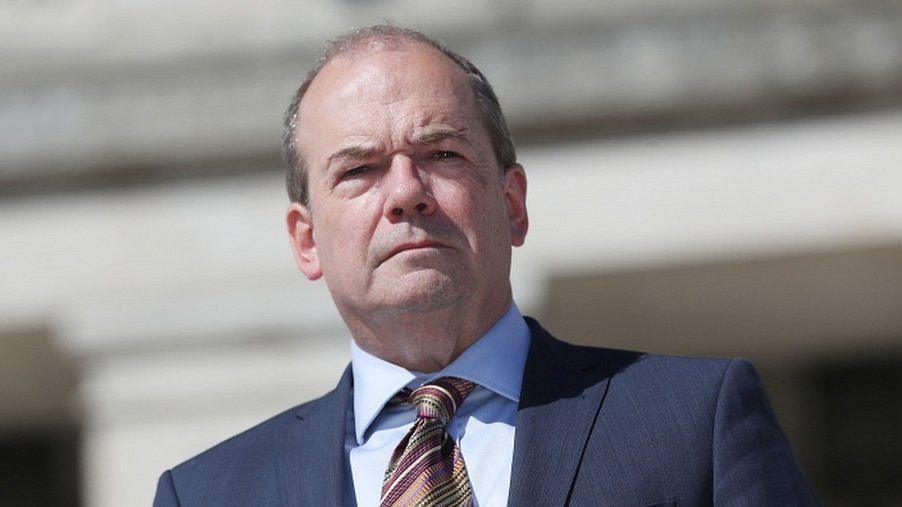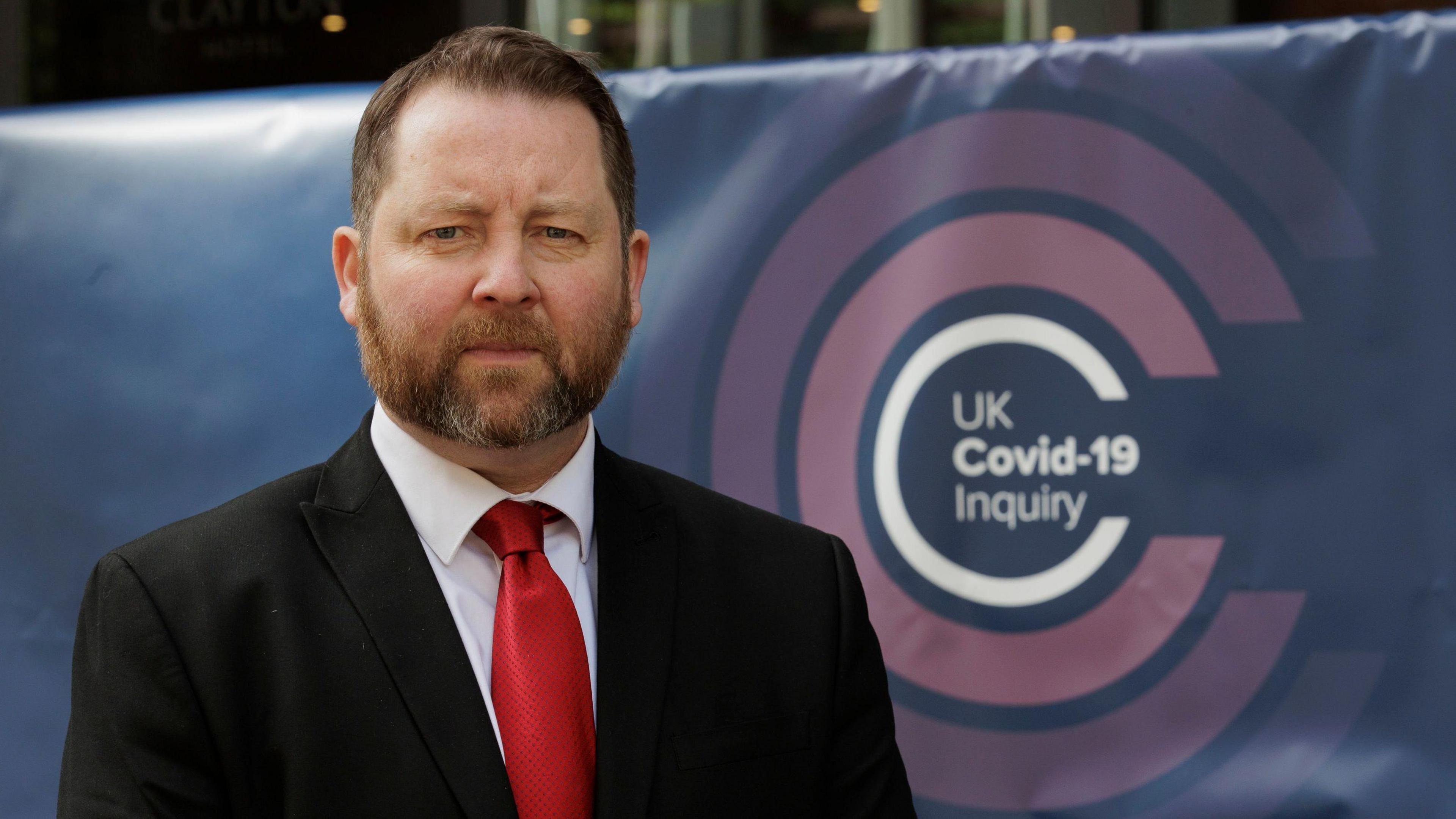Chief medical officer rejects NI officials were unprepared for Covid

Prof Michael McBride was appointed to the post of chief medical officer for the Department of Health in September 2006
- Published
The chief medical officer has rejected claims that he felt the devastating path coronavirus had wreaked through care homes in Italy at the beginning of the pandemic in 2020 would not occur in Northern Ireland.
Sir Michael McBride has been speaking at the UK Covid-19 Inquiry.
He told the inquiry that measures were being put in place at the time in conjunction with the UK government, its emergency Cobra committee, scientific advisory group Sage and all relevant bodies in Northern Ireland.
The inquiry is currently examining adult and residential care as part of its scrutiny of how the response to the pandemic was handled.

Eddie Lynch served as Northern Ireland's commissioner for older people for eight years until 2024
Counsel to the inquiry, Jacqueline Carey, asked Sir Michael about evidence given to the hearing on Wednesday from the former commissioner for older people, Eddie Lynch.
She said Mr Lynch had stated that the view of the chief medical officer and the chief social worker on the situation in Italy - where elderly people were dying in care homes - was "that won't happen here".
"Mr Lynch told us yesterday that his general impression in March was that there was an air of unreality, that it wouldn't happen in Northern Ireland," she said.
Asked if he had believed that what was happening in Italy was "not going to reach the shores of Northern Ireland", Sir Michael said: "I fail to understand those comments if I'm really honest."
He said he was fully aware of the seriousness of the evolving situation and had met with all the relevant bodies to ensure there was a robust approach to Northern Ireland's preparations.
"I really don't understand any sense of unreality or lack of urgency," he said.
"Within days we had introduced, on the 16th March, social distancing, working from home, advising people not to go to pubs and restaurants, so I really don't understand that reflection."
'Lessons can be learned' from care home lockdowns
- Published23 July
When counsel to the inquiry asked Sir Michael why care home workers had not been among priority front line workers who were being tested in March 2020, he said that was because Northern Ireland did not have enough tests.
"A good example is that on 2 March, the then minister provided a statement to the executive indicating that we had carried out 150 tests, and one had been positive," Sir Michael said.
"That was not what was happening - it did not reflect the reality of how the pandemic was spreading or how rapidly it was spreading.
"It reflects the fact that in many respects we were running to catch up."
He told the inquiry that Northern Ireland's early surge plans lacked "specificity" and there were gaps around infection prevention in the care sector and how the care home sector would engage with hospitals.
"What I needed to see were overarching plans between the care home and the acute sector across the region, that regional coordination needed to be much more robust," he said.
"While there were several people with wide-ranging knowledge of the social care sector, there was no-one within the Department of Health who had specialist knowledge of social care."
Sir Michael also said that while he wasn't a specialist in social care, working in an integrated system meant there were several people, including the chief social care officer and the chief nursing officer, whom he had access to and who understood the key priorities.
Former health minister testifies
The inquiry has also been hearing from Northern Ireland's former health minister, Robin Swann.
The South Antrim MP said he was not 100% happy with the "restrictive" nature around relatives visiting residents in care homes.
He said the development of the care partner scheme was aimed at addressing that, but acknowledged there were problems rolling it out.
Mr Swann said there was a concern among some of the care home managers about what it meant and the risk of an increase in Covid cases.
When asked by counsel to the inquiry if health officials had listened to the concerns of home providers about the scheme, Mr Swann said he felt overall there had been a positive response.